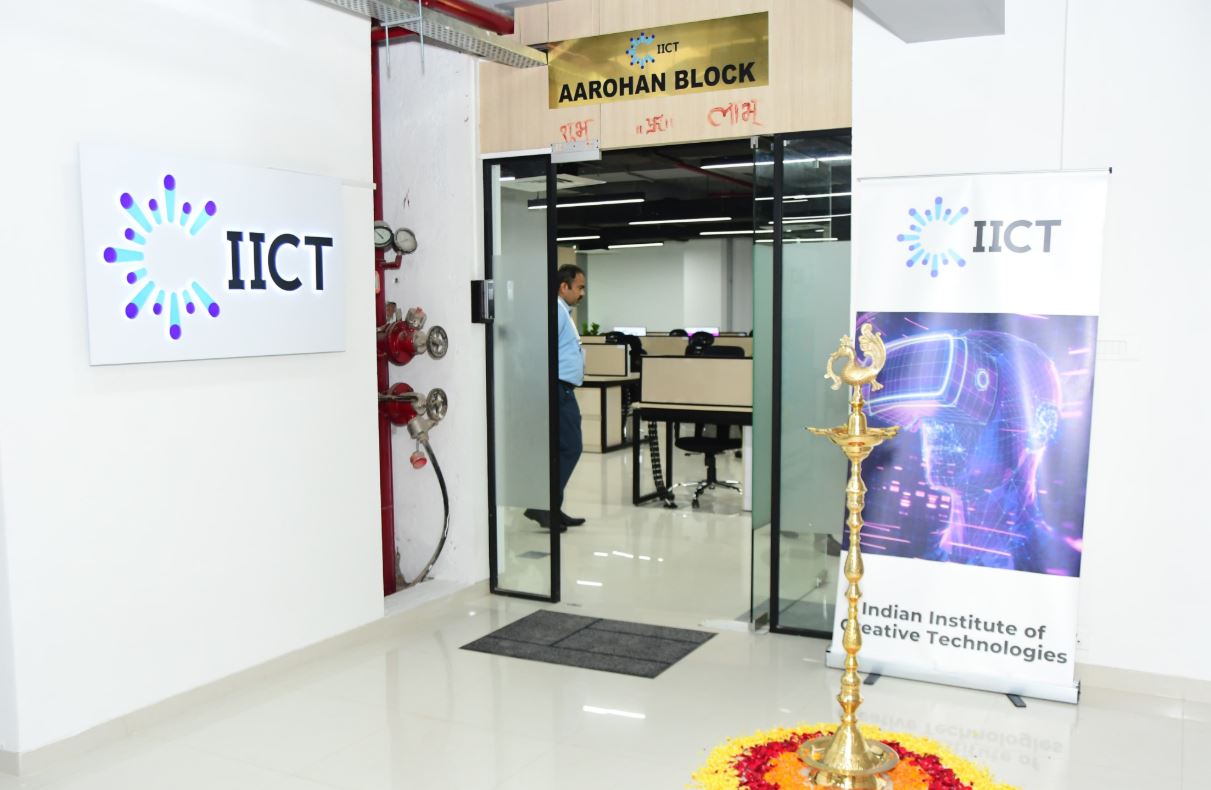- By Sarju Saran Tiwari
- Fri, 18 Jul 2025 03:11 PM (IST)
- Source:JND
Indian Institute of Creative Technologies (IICT): In a historic move to transform India's creative technology landscape, Union Minister for Information & Broadcasting, Railways and Electronics & IT, Ashwini Vaishnaw today inaugurated the classrooms and administrative complex of the Indian Institute of Creative Technology (IICT) at NFDC India Complex, Mumbai. This pioneering institute was first announced at World Audio-Visual & Entertainment Summit (WAVES) 2025 and is known as a "creative IIT" set to revolutionise skill-based training in the fast-growing AVGC-XR (animation, visual effects, gaming, comics and extended reality) sector.
The inauguration was attended by key dignitaries, including Maharashtra Chief Minister Devendra Fadnavis, Minister for Information Technology and Cultural Affairs Ashish Shelar, Chief Secretary Rajesh Kumar Meena, and Secretary of MIB Sanjay Jaju, underscoring the collaborative effort behind this ambitious project.
Minister Vaishnaw emphasised that the IICT is a "new kind of institution for a new India," aiming to replicate the transformative impact of IITs and IIMs in engineering and management education. With an initial budget of ₹400 crore, the institute will offer a robust portfolio of industry-driven courses designed to equip creative professionals with cutting-edge tools, skills, and global exposure. The goal is to prepare India's youth for the demands of the global creative economy, ensuring they have access to the best training in modern content technologies such as VFX, post-production, animation, gaming, and creative IT.
Chief Minister of Maharashtra @Dev_Fadnavis and Union Minister for Information & Broadcasting, Railways and Electronics & IT @AshwiniVaishnaw inaugurated the classrooms and administrative complex of the Indian Institute of Creative Technologies (#IICT) at @nfdcindia Complex, in… pic.twitter.com/tPv7aXrpKs
— PIB in Maharashtra 🇮🇳 (@PIBMumbai) July 18, 2025
The Mumbai campus is expected to welcome 300 students in its inaugural year, marking a significant step towards building India’s capacity in this dynamic field. Vaishnaw highlighted the critical need for Indian creators to have access to world-class tools and training, positioning IICT as the central hub for this endeavor. This initiative aligns with the government's vision of fostering innovation and skill development, ensuring India remains competitive in the global creative landscape.
Global Partnerships and Industry-Driven Programs:
A defining feature of IICT is its deep integration with industry leaders from its inception. The institute has already forged formal partnerships with global tech giants such as Google, Meta, Apple, Microsoft, NVIDIA, Adobe, and WPP. These collaborations ensure that the curriculum remains highly relevant and industry-aligned, providing students with practical skills and exposure to real-world challenges. Seventeen industry-backed programs are currently under development across various fields, including VFX, post-production, gaming, and animation, with a strong emphasis on future skills and employability.
Comprehensive Courses and Infrastructure Development:
The IICT will offer a diverse range of courses, from three-month short-term modules to comprehensive two-year programs, catering to a wide spectrum of learners with varying needs and career aspirations. The Mumbai campus, situated on NFDC grounds, is just the first phase of a larger vision. Future plans include the development of incubation labs, collaborative spaces, and advanced training infrastructure, all designed to foster an environment of innovation and creativity. A second campus is already in progress at Film City, with land allocated and architectural designs underway, promising rapid expansion of the IICT network.
Vision for Mumbai's Creative Future:
Calling Mumbai the "cultural and creativity capital of India," Minister Vaishnaw underscored the symbolic importance of establishing the first IICT campus in the city. He expressed pride in this development and lauded the Maharashtra leadership for their swift support in land allocation and project approvals. Vaishnaw reiterated the government's commitment to rapid progress, stating that the Film City campus is expected to be fully planned and ready within 4-5 months. This initiative, he noted, is a critical first step in preparing India’s youth for the creative jobs of the future, complementing the recently announced $1 billion fund to boost India's creator economy.

